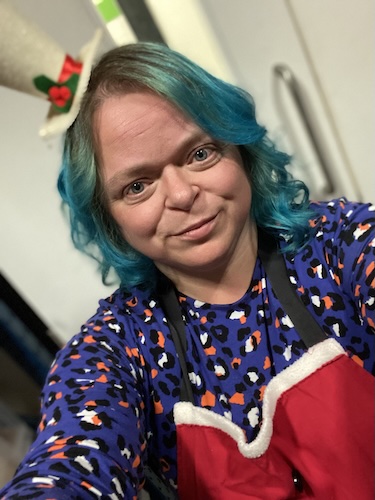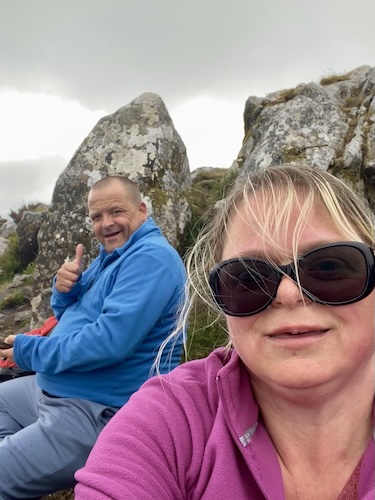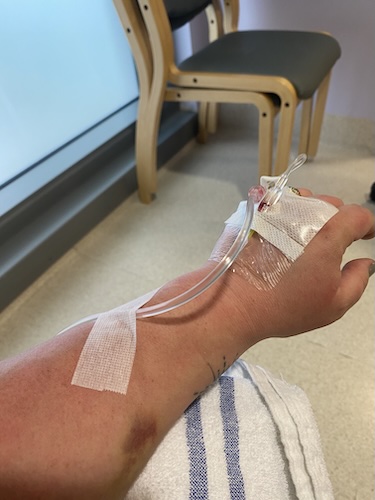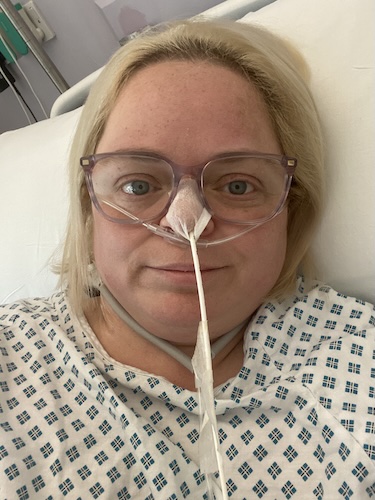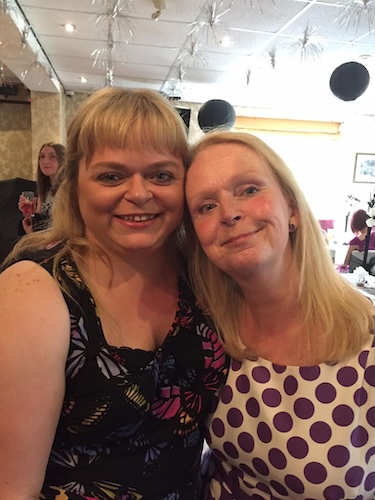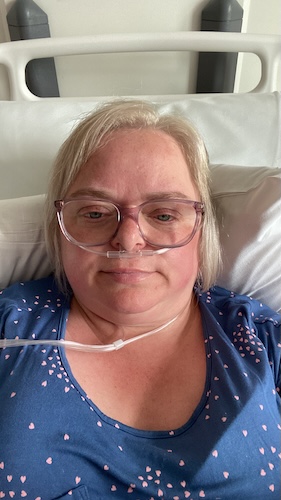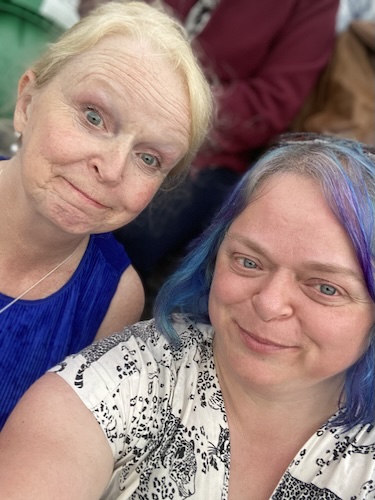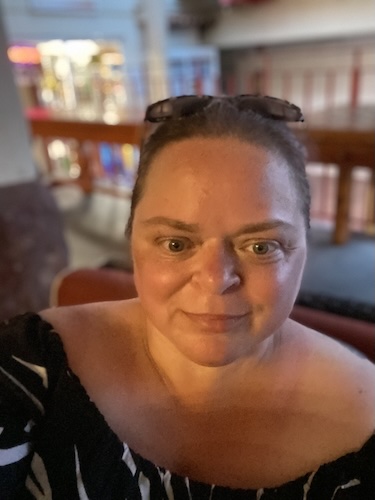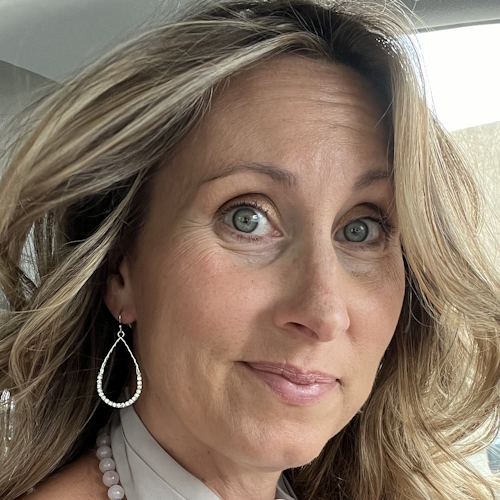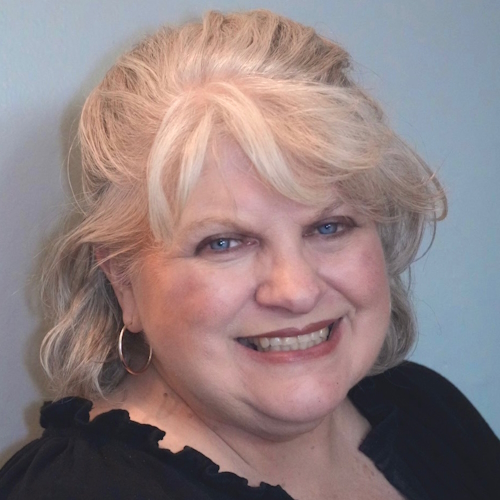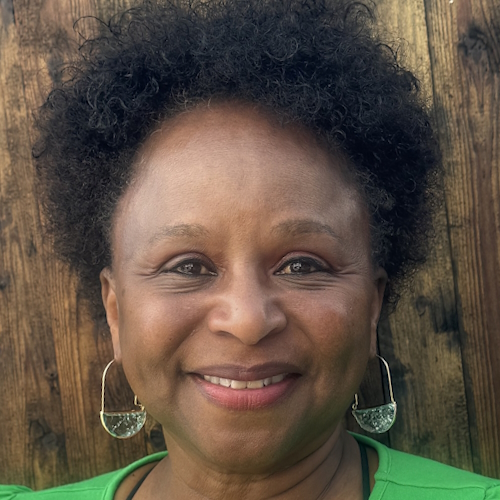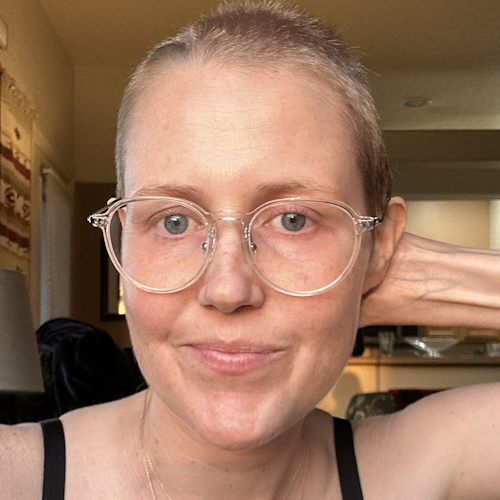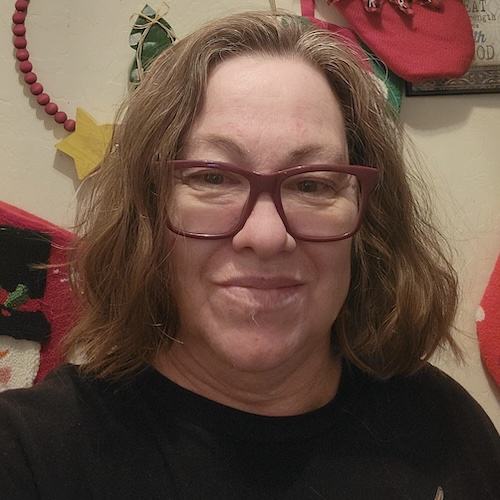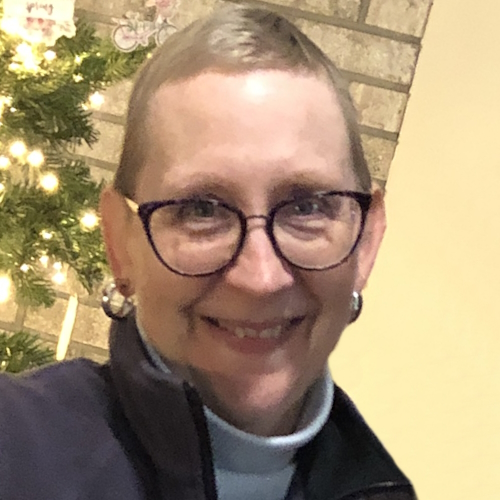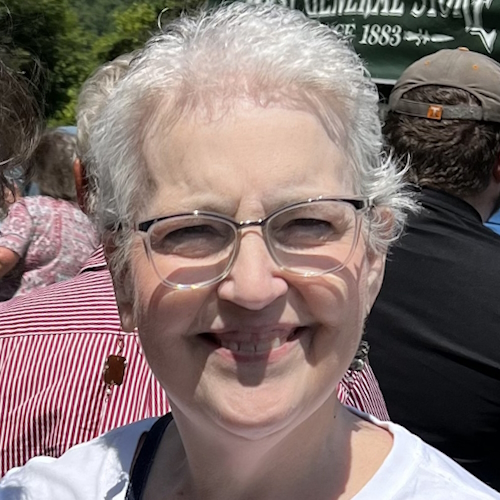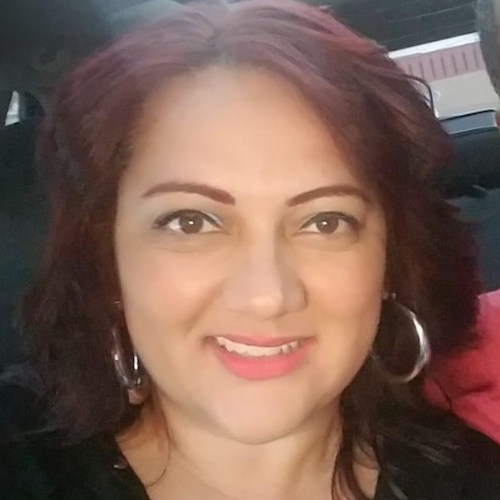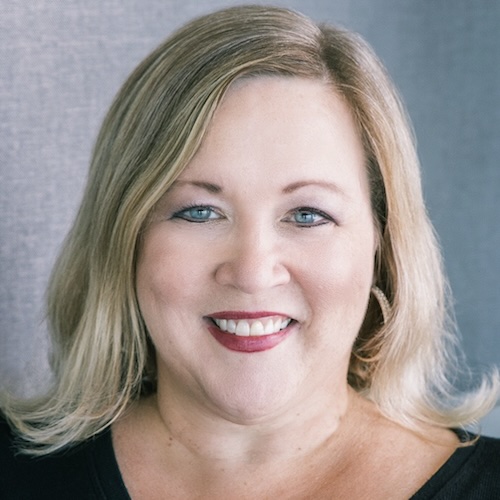Choosing Life on Her Terms: Pippa’s Stage 4 Vulvar Cancer Story
Pippa shares her stage 4 vulvar cancer experience. Diagnosed in January 2023, her early symptoms were subtle, including persistent soreness and discomfort that eluded quick fixes. From the start, she leaned into her intuition, seeking answers and refusing to dismiss what her body was telling her. Eventually, she was diagnosed with stage 1 vulvar cancer — a diagnosis that shifted to stage 3 and, ultimately, stage 4 once it was found to have spread.
Interviewed by: Carly Knowlton
Edited by: Chris Sanchez
Soon, Pippa had to deal with surgeries, including a total pelvic exenteration. Repeated hospitalizations and side effects of her vulvar cancer treatment took their toll. She describes physical discomfort, mental exhaustion, and adjustments to routines, but always underscores how grateful she is to have received unwavering support from her husband, family and friends, and her employer as well.
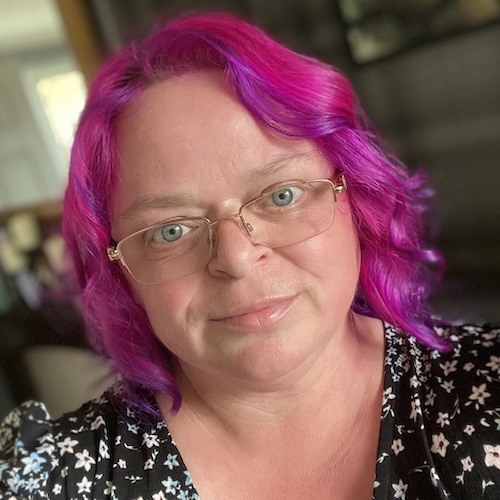
Pippa was at times overwhelmed by the treatments for her rare cancer, especially when options dwindled after recurrence. Despite the recommendation for more intensive chemotherapy, Pippa chose quality of life over harsh intervention, a defining moment in her experience. New routines emerged, built on patience and realistic expectations. She learned to walk again, embraced ostomy care, and shifted to slower, more deliberate daily rhythms.
Beyond her treatments, Pippa also works to raise awareness for vulvar cancer. She helps other women navigate early symptoms and speaks openly about the mental and emotional challenges of living with such a diagnosis. She emphasizes that “there is life with cancer” and that advocacy, community, and small joys, be they dog walks, time spent with loved ones, or moments in nature, offer resilience through uncertainty.
Pippa’s stage 4 vulvar cancer experience helps rewrite what it means to live fully with cancer and reminds us of the power in listening to one’s body and advocating for care. Watch her video and read through her transcript below. You’ll learn about:
- Trusting your instincts and advocating for yourself, because persistent discomfort deserves immediate attention
- How the support of loved ones, community, and compassionate medical professionals dramatically impacts mental and emotional well-being
- How treatment exhaustion and physical limitations demand patience and realistic expectations; routine tasks become part of recovery and adaptation
- The meaning and dignity to be found in living with cancer
- How Pippa transformed her experience into advocacy, raising awareness for vulvar and vaginal cancers and empowering others to seek care and speak up
- Name: Pippa S.
- Age at Diagnosis:
- 47
- Diagnosis:
- Vulvar Cancer (Metastatic)
- Staging:
- Initially Stage 1; progressed to Stage 3; currently Stage 4 and terminal
- Symptoms:
- Persistent itching
- Red patch of skin inside left labia that turned into a wart-like lump
- Bloody discharge
- Treatments:
- Surgeries: wide local excision, lymphadenectomy, total pelvic exenteration, colostomy surgery, urostomy surgery
- Radiation therapy
- Chemotherapy
This interview has been edited for clarity and length. This is not medical advice. Please consult with your healthcare provider to make informed treatment decisions.
The views and opinions expressed in this interview do not necessarily reflect those of The Patient Story.
- Hi, I'm Pippa
- Surgeries, tubes, and recovery challenges
- Complications after surgery: infections and skin issues
- The first warning signs
- Fast-track diagnosis: a rare cancer identified
- Staging and unexpected test results
- Radiotherapy and chemotherapy: intensive treatment
- Recurrence: facing stage 4 and new surgeries
- The largest surgery: total pelvic exenteration
- Living with side effects and adjusting to daily life
- The importance of support from family, friends, and my employer
- The impact on my mental and emotional health
- Shifting identity and living meaningfully
- Monitoring and looking ahead
- My advice for patients and raising awareness
Hi, I’m Pippa
I was diagnosed with vulvar cancer in January 2023.
I’m a big foodie. I love cooking and baking, and I work in the food industry. I enjoy walks, hikes, and seeking out new restaurants. I have a passion for travel, exploring new places rather than relaxing by the pool, and I’m a dedicated Lego collector.
Surgeries, tubes, and recovery challenges
After my last surgery, I had an NG tube inserted through my nose into my stomach to feed me, because my abdomen had gone through so much trauma that I couldn’t tolerate any food. I was violently sick with everything I ate, so I was tube-fed for about ten to fourteen days. It was extremely uncomfortable. One day, I became so sick that I vomited the tube up and refused to have it put back in.
Complications after surgery: infections and skin issues
After one of my surgeries, I developed an infection. During the night, I must have scratched myself and introduced bacteria, leading to cellulitis. My neck and face became dry and peeled repeatedly, leaving raw skin. This happened about five times, and I ended up hospitalized. At one point, strangers thought I had a terrible sunburn, but a kind security guard recognized it was cellulitis and offered advice that made me feel genuinely cared for. That really made me feel very loved.
The first warning signs
The first red flag was a sore, itchy patch inside my left labia that became increasingly uncomfortable. Over-the-counter creams and medications didn’t help. It eventually formed a wart-like lump, and even lidocaine couldn’t relieve the pain. I experienced walking, standing, and sitting discomfort, bleeding, a bloody discharge, and pain during sex. Eventually, I no longer wanted to have sex at all because it was so painful. That’s when I scheduled a doctor’s appointment.
Nothing was getting rid of it, and I just kept persevering. I was just so uncomfortable.
Fast-track diagnosis: a rare cancer identified
Thankfully, my doctor had seen vulvar cancer, this rare cancer, before, and immediately suspected either an infected cyst or cancer. Antibiotics did nothing, so she referred me for a biopsy. Even before the diagnosis, I knew in my heart it was cancer.
The biopsy confirmed early-stage vulvar cancer, which wasn’t a surprise at this point. The biopsy itself was extremely painful and left me in agony for days.
Staging and unexpected test results
It was initially diagnosed as stage 1; my scans didn’t show cancer elsewhere. Surgery removed the tumor and some lymph nodes, but two of those nodes were cancerous, so I was told it was now stage 3.
I was shocked but not surprised. My gut instincts had been correct from the start.
Radiotherapy and chemotherapy: intensive treatment
I received 25 rounds of radiotherapy and five rounds of chemotherapy over five weeks; Monday through Friday for radiotherapy, and a full day at the hospital for chemo every Wednesday.
Recovering from these treatments was exhausting. I did most of it alone because I just didn’t have the energy for conversation. Netflix kept me company during those long hospital days.
Recurrence: facing stage 4 and new surgeries
By January 2024, symptoms reappeared on my right labia and near my back passage. I had further biopsies, surgery in March, and again in July, each time taking more suspect tissue. Soon after, scans revealed the cancer had reappeared internally in my right groin and in my lung.
Because previous radiotherapy ruled out more radiation and more surgery was considered too risky, the only remaining option was high-dose chemotherapy. I declined, wanting to avoid spending my remaining time very ill and instead focus on quality of life.
The largest surgery: total pelvic exenteration
In October 2024, I had a total pelvic exenteration, a rare and massive surgery. Most of my large bowel, my back passage, bladder, vagina, and uterus were removed.
I now have two stomas, a colostomy and a urostomy bag, and while I initially worried about them, they are simply part of my daily routine.
Recovery was extremely hard. I had to relearn to walk and couldn’t leave the hospital for eight weeks. Daily tasks left me exhausted, but I had support from nurses, my husband, family, and friends.
Living with side effects and adjusting to daily life
Fatigue and loss of appetite linger. I have chronic pain, osteoarthritis in both hips, and lymphedema in my leg. My pace of life has slowed tremendously. My dog has been vital for my daily motivation.
I get chronic fatigue now. So I can’t do as much as I could.
I focus on what matters and let go of perfectionism in housework. Getting through each day, ensuring my family is cared for, is my priority.
The importance of support from family, friends, and my employer
My husband has been unwavering. He has been an absolute rock. I couldn’t have done this without him. Seeing his pain has been the most difficult part.
My parents, despite their own health issues, visit and support me regularly. My friends, colleagues, and even my employer have gone above and beyond, providing gifts, visits, and patience as I adjust to ill-health retirement.
The impact on my mental and emotional health
I sought counseling, especially after being told the cancer was terminal. My biggest fear was leaving my husband and how he would cope.
I have learned to make peace with uncertainty and to focus on living each day as fully as possible. I’m at total peace with it now. It’s going to happen when it’s going to happen.
And until that point, I’m just going to keep living my life.
Shifting identity and living meaningfully
I’ve learned to savor the small things — dog walks, nature, time with my husband.
My identity has shifted; I’m told I’m strong and brave, though I don’t always feel it.
Raising awareness for vulvar cancer gives me purpose, and I have built a strong online community. Supporting others gives me pride and motivation to keep sharing and reaching women who might be afraid to talk about gynecological health.
I’m incredibly proud of the awareness that I’m raising. There is life with cancer.
Monitoring and looking ahead
I no longer have regular appointments, but I can contact my care team or palliative nurse as needed.
I am considering joining early-stage clinical trials, not for my own benefit but to help those who come after me, since direct treatments for vulvar cancer are lacking.
For now, I focus on making great memories, financial stability for my husband, and empowering women to check themselves and seek care quickly.
My advice for patients and raising awareness
If you notice symptoms, get checked. Don’t ignore discomfort or delay care. Even if a symptom is embarrassing, moments of awkwardness are worth it for your future.
Just go and get it checked out. What’s a few minutes of embarrassment over the rest of your life?
Be your own advocate and empower those around you. Vulvar and vaginal cancers need more attention and openness.

Inspired by Pippa's story?
Share your story, too!
Related Cancer Stories
- 1
- 2
